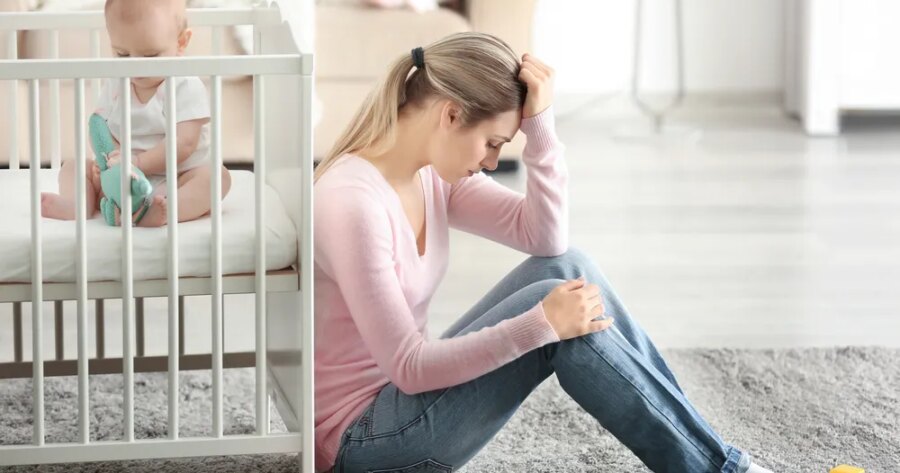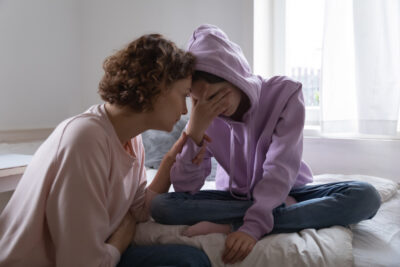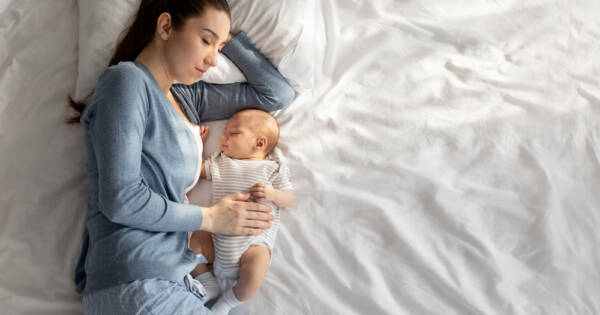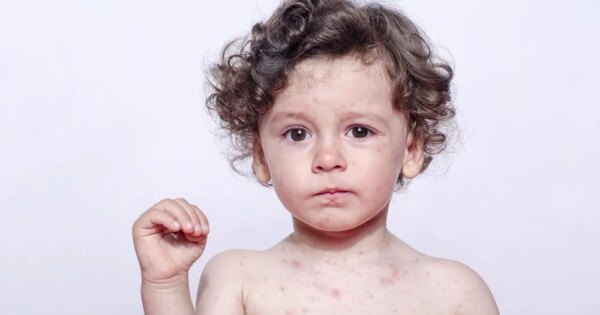Welcoming a baby into this world is one of the most exciting moments of a parents life. However, due to the nature of it all (i.e. those pesky hormones), it can also be really emotional and overwhelming. Many mothers struggle with what’s called the “baby blues” after giving birth, but for some, the emotions following birth are much more serious than just a case of the blues.
It’s not uncommon for women to struggle with postpartum depression (PPD) after they have a child. According to WebMD, it happens to about 10-percent of moms. Oftentimes it develops within a few weeks of delivery, but there are also times when it doesn’t surface until a few months later. The most important thing is that the mother gets treatment either through a doctor or counsellor. To get better informed on the topic, let’s take a look at the early warning signs of postpartum depression…
1. Baby Blues That Won’t Go Away
The “baby blues” are a term used to refer to those two weeks after giving birth where a mother often experiences a dip in her mood. This is usually due to hormones and the fact that they’re feeling exhausted and overwhelmed. These feelings are totally normal and often only last about a week or so before going away.
What’s not normal is feeling sad and hopeless after having a child or being unable to bond with your baby. Not only that, but if these feelings carry on for weeks and even months, becoming more and more intense, it could be something more serious than the baby blues. It could be postpartum depression.
2. Anxiety
It’s normal for new moms to feel a little bit anxious, especially if it’s your first child. For some women, it can take a little while to feel completely confident and comfortable in their new role as a mother. That’s normal. Although, we do regret to inform you that you’ll likely always be wondering whether you’re doing a good job! Unfortunately, there’s no “how-to” manual for being a parent.
Anxiety becomes a sign of postpartum depression when it interferes with your ability to take care of your baby. It goes from normal feelings of anxiousness to having a full on anxiety or panic attacks. You’ll feel out of control and likely want to escape from it all.
3. Feeling Guilty
We’ve all heard the term “mom guilt” before which is typically used by moms when they go and do something for themselves, taking time away from their children. Many mothers struggle with this kind of guilt. It typically gets better with time, once you’ve found a more balanced lifestyle, whether it be with work, self-care, or socializing with friends.
When we talk about a mom with postpartum depression, the guilt is much more intense and doesn’t only present itself when you’re spending time away from your newborn. Postpartum depression will cause feelings of worthlessness, shame, guilt or inadequacy as a parent, says the Mayo Clinic.
These feelings may stem from not being able to bond with the baby. You might begin to withdraw from friends and family, unable to confide in anyone out of guilt that you’re a bad mother or fear that they’ll take your baby away from you.
4. Change in Sleep Patterns
This one might seem obvious. Of course a newborn changes sleeping patterns! We know that. The change in sleeping patterns from postpartum depression isn’t just a lack of sleep due to nighttime feedings or a fussy baby, it’s the inability to fall asleep at all. Postpartum depression can cause insomnia.
They say to sleep when the baby sleeps, but moms with postpartum depression won’t even be able to relax when their baby is napping. They’ll be totally restless. It can also have the opposite effect and cause moms to sleep too much or all the time.
5. Inability to Think Clearly
Every mother will say that the first few months at home with a newborn is extremely exhausting. You’re often running on very little sleep, wacky hormones, lack of energy, and it can be even harder if there are other children in the mix! Sleep is super important for our health which is why we really feel it when we don’t get enough. One of the most common side effects of lack of sleep is mental fogginess. You might become forgetful and unable to think clearly.
Postpartum depression can have a similar effect, but as with many of the other symptoms on this list, it’s much more severe. According to WebMD, it will make simple tasks and decisions like getting out of bed, taking a shower, changing your baby’s diaper, or taking a walk, seem impossible. You’ll experience a great deal of trouble making decisions and a diminished ability to think clearly, concentrate, or make decisions, says the Mayo Clinic.
6. Lose Interest in Things You Used to Enjoy
Becoming a mother changes everything. You’ve stepped into this new role as a parent and may find yourself with a whole new perspective. That’s not uncommon. It also brings a change in lifestyle. You’ll likely have to take a step back from hobbies and socializing, especially when juggling life with a newborn. Again, this is normal and often only temporary. Postpartum depression, on the other hand, can cause a drastic change in personality. The most common example of this is decreased interest in things that once made you happy or brought enjoyment.
Some examples of this might be that you don’t laugh at the same jokes or aren’t interested in showing affection to anyone, including your partner. A movie you used to love comes on, but you don’t feel like watching it. You’ll even lose interest in your favorite foods or just not feel like eating at all. If this sounds familiar, contact a doctor right away.
7. Loss of Appetite
In addition to experiencing a change in sleeping patterns, postpartum depression can also cause a change in eating patterns. People with depression often struggle to find the energy to do anything, even the most mundane tasks like fixing themselves a meal.
It can also cause a lack of appetite or decrease in appetite. On the other hand, postpartum depression can also cause you to eat more than normal. In this case food may be used as a coping mechanism to feel better and soothe yourself.
8. Thoughts of Harming Yourself or Baby
One of the scariest symptoms of postpartum depression are those that cause you to have thoughts about either hurting yourself or your baby. Postpartum depression can cause recurrent thoughts of death or suicide. If this is the case, these are advanced signs of postpartum depression and mean you need help right away. Call a doctor or seek help through the National Suicide Prevention Lifeline (800-273-8255).
It can also be a sign of postpartum psychosis which is a rare and serious mental illness that can happen as a result of postpartum depression. The Mayo Clinic explains that postpartum psychosis typically develops within the first week of delivery and the symptoms will be severe, including “confusion and disorientation, obsessive thoughts about your baby, hallucinations and delusions, sleep disturbances, paranoia, excessive energy and agitation,” as well as attempts to harm yourself or your baby.
9. Physical Aches and Pain
Oddly enough, the symptoms of postpartum depression aren’t only mental or emotional. They can also be physical. Women with postpartum depression can experience headaches, as well as other aches and pains in their body, says the Office on Women’s Health (OWH). They may also have stomach problems that don’t go away.
10. Extreme Exhaustion
This symptom can be hard to pinpoint because most mothers are exhausted and fatigued in the weeks, and even months, following birth. This source of the exhaustion is often due to the lack of sleep. This is totally normal and quite often expected.
The exhaustion that comes with postpartum depression will be much more severe. You’ll struggle with extreme tiredness, lack of energy, and overall lack of motivation that can’t be cured from a good night’s sleep.
11. Negative Feelings Toward Your Baby
This ties in with having thoughts of harming your baby and not being able to bond with their baby. Many mothers with postpartum depression will lack any interest at all in their baby. This is typically a result of them not feeling connected to their baby or even feeling like the baby is someone else’s child, says the Office on Women’s Health.
12. Constantly Irritable and Agitated
Women struggling with postpartum depression will suffer from extreme mood swings and likely be constantly irritated or agitated. This irritation and anger will also be quite intense and irrational. They will also seem depressed and have severe mood swings that can come and go without warning, says the Mayo Clinic.
Along with these mood swings, you might find yourself excessively crying for seemingly no reason at all and unable to console yourself.















